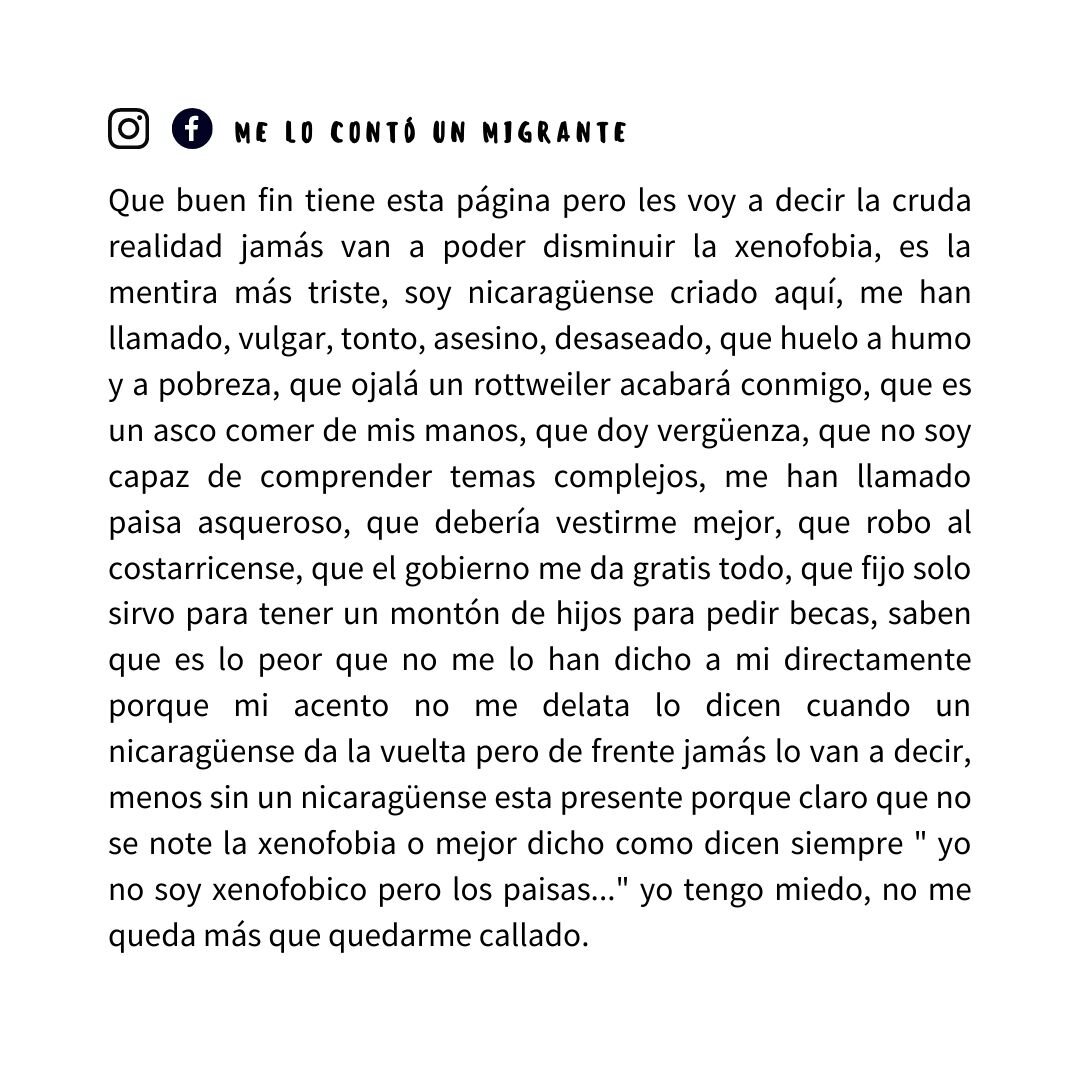Me lo contó un migrante
A Young Spot to Expose Migration Stories
“Me lo contó un migrante” (A migrant told me that) is a project that exposes experiences of young migrants as if they were stories to change the society’s negative perspective towards migration. Taking advantage of the international visibility of their founders, Me lo contó un migrante criticizes xenophobia and hate speech.
Me lo contó un migrante began just two months ago in the middle of a migrant community in Foz do Iguaçu, Brazil. The encouraged young spirit of 10 Latin Americans led them to make a video call.
“We are ten people working as the staff; each of us provides their own talent and knowledge,” says Rubén Canales, one of the project founders who come from Costa Rica, Nicaragua, Peru, Guatemala, El Salvador, and Paraguay. All of them are young migrants and students who live in Brazil or the United States.
The official release of Me lo contó un migrante on social networks was on July 13 th, just a month after the release of this video. One month after seeing the light on social networks, Me lo contó un migrante received more than 20 anonymous stories. The project also invites people to share their experience as a migration-related story.
“We thought about having a meeting in Zoom to tell real stories, our stories. We also decided to include one friend each. There were 7 stories in total, and we soon realized that this meeting was the first step of the project,” Rubén remembers.
Interviewer: What is the goal of the project Me lo contó un migrante?
Rubén Canales: The project’s goal is to raise awareness and teach people about empathy and solidarity. We want to create a safe spot in which everyone can share their story without fearing about rejection or hatred.
Interviewer: What has impacted you the most?
Rubén Canales: There are some impactful, sincere stories that has made us think about the project. We believe that Me lo contó un migrante must take a stand and create content against hatred and discrimination due to nationality, skin color, social class, among others. We can’t and shouldn’t just post stories.
Interviewer: What is the future you imagine for Me lo contó un migrante?
Rubén Canales: We imagine a more diverse spot in terms of geography and identity because we are aware about our geographical and skin color privileges. We are thinking about creating content including the different ways in which migration happens and put into spotlight topics like the African diaspora, Venezuelans situation, American Dream, women, LGBTQ+, and indigenous people. [Imagen de las dos historias]
Share your story and contribute to the Me lo contó un migrante project.
Translated by: Natalia Solera Chavarría
Email: melocontounmigrante@gmail.com
Instagram: @melocontounmigrante


